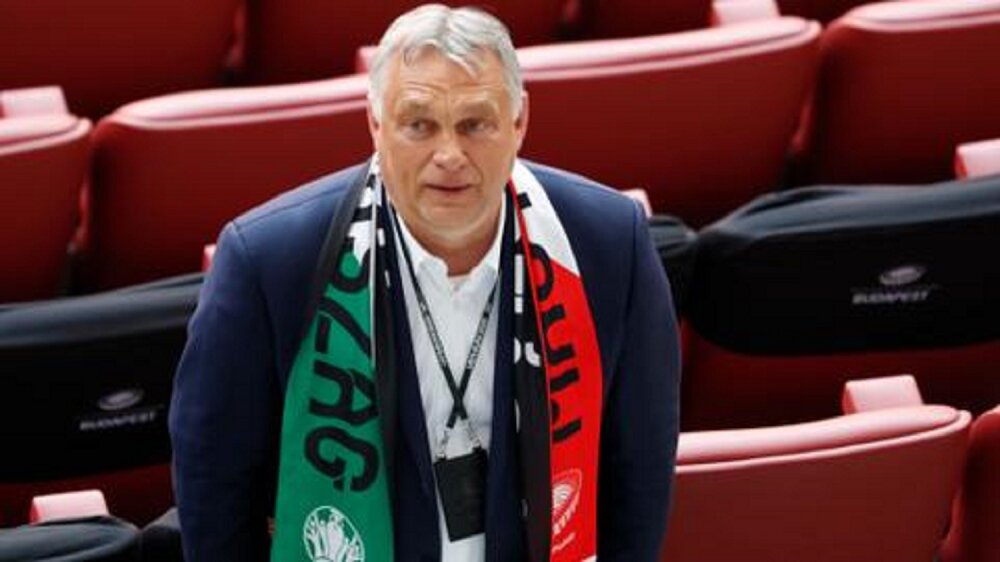Hawzah News Agency –Hungarian Prime Minister Viktor Orban has long been known for his extreme views on vulnerable people from migrants to refugees and minorities.
Yesterday, Orban added Bosniaks, a Muslim Slavic nation native to the Balkans, to his list of targets. Hungarians, a Central Asian-origin nation, migrated to Europe from Asia.
“The challenge with Bosnia is how to integrate a country with 2 million Muslims,” responded Orban, when asked about EU enlargement.
Orban appeared to suggest that it’s ok to accept countries like Croatia, a Christian-majority state to the EU despite “enlargement fatigue”, but it would be difficult to include countries like Bosnia and Herzegovina (BiH) due to its large Muslim population.
"I am doing my best to convince Europe’s great leaders that the Balkans may be further away from them than from Hungary, but how we manage the security of a state in which 2 million Muslims live is a key issue for their security too,” Orban said.
Orban’s treatment of Muslim Bosniaks as a "security" issue for Europe naturally sparked anger in Sarajevo, the Bosnian capital.
“Orban openly and continuously advocates Islamophobic views,” said Sefik Dzaferovic, a member of Bosnia and Herzegovina’s tripartite presidency and a leading Bosnian politician. “He sees the presence of Muslims in Europe, including Bosniaks, as a problem,” Dzaferovic told TRT World.
Earlier today, Dzaferovic also described Orban’s statement as “shameful and obscene”.
“It is not a challenge for the EU to integrate two million Muslims. Bosniaks in BiH [Bosnia and Herzegovina] are native European people who have always lived here. We are Europeans,” he said.
Interestingly, while Orban’s statements regarding Bosniak Muslims were first revealed by his press secretary Zoltan Kovacs on Twitter, they were not included in the official statement published later on.
Dzaferovic also drew attention to the fact that even though Bosniaks were under total siege by Serbian leadership in the 1990s during the brutal Bosnian War, they still showed their loyalty to “the universal values of civilisation”, not resorting to any criminal conduct as Serbs did at the time.
As a result, the Bosnian leader thinks that not his fellow Muslims but people like Orban might be “the real challenge” for the EU due to their “radical, xenophobic, racist policies.” Dzaferovic warned that if the EU tolerates people like Orban, it will put its diverse future based on human rights in danger.
“We also believe in such an EU and we want to go to such an EU, not the EU advocated by Orban and the clique that appeared yesterday with these shameful messages,” the Bosnian president added.
In the past, Orban has been criticised for controversial statements like “we do not want our colour... to be mixed in with others,” referring to his refusal to accept migrants and refugees. After that statement in 2018, then-UN High Commissioner for Human Rights, Zeid Ra’ad Al Hussein, called him “a racist & xenophobe”.
“Orban himself has problems with many other member states of the European Union who believe that his government does not adhere to European democratic standards and the rule of law,” Dzaferovic says.
Orban-Dodik alliance?
During his latest tirade against the Bosniaks, Orban also emphasised his close relations with the Bosnian Serb leadership, which openly seeks secession from Bosnia and Herzegovina, putting the fragile Balkan peace in danger.
“The Balkans cannot be stabilized without the Serbs, without Bosnia, and Bosnia cannot be stabilized without the Bosnian Serbs. The key to the Balkans is the Serbian nation,” he said.
Orban’s Bosnian Serb statement is no coincidence, according to Dzaferovic. “On that Islamophobic agenda, he connects with Milorad Dodik,” he says. Dodik, a secessionist, is another member of the Bosnian presidency, being the Bosnian Serb leader.
“I think that, having in mind current political crisis in Bosnia and Herzegovina, he [Orban] felt the need to show solidarity with Dodik and stand up for his protection, because the international consensus is that Dodik is the source of the crisis in BiH,” the Bosnian leader argues.
Europe, much of which is under EU leadership, does not want another bloody war in the Balkans. The Peace Implementation Council, an international political body, which oversees Bosnia’s peace, urged leaders like Dodik to discontinue their "destabilising and divisive rhetoric" including threats of secession in October.
Despite his problematic statement on Bosniaks, Orban also appeared to suggest that Hungary “will still be a gateway even if the western Member States of the EU do not yet want to include the countries of the Western Balkans.”


Your Comment